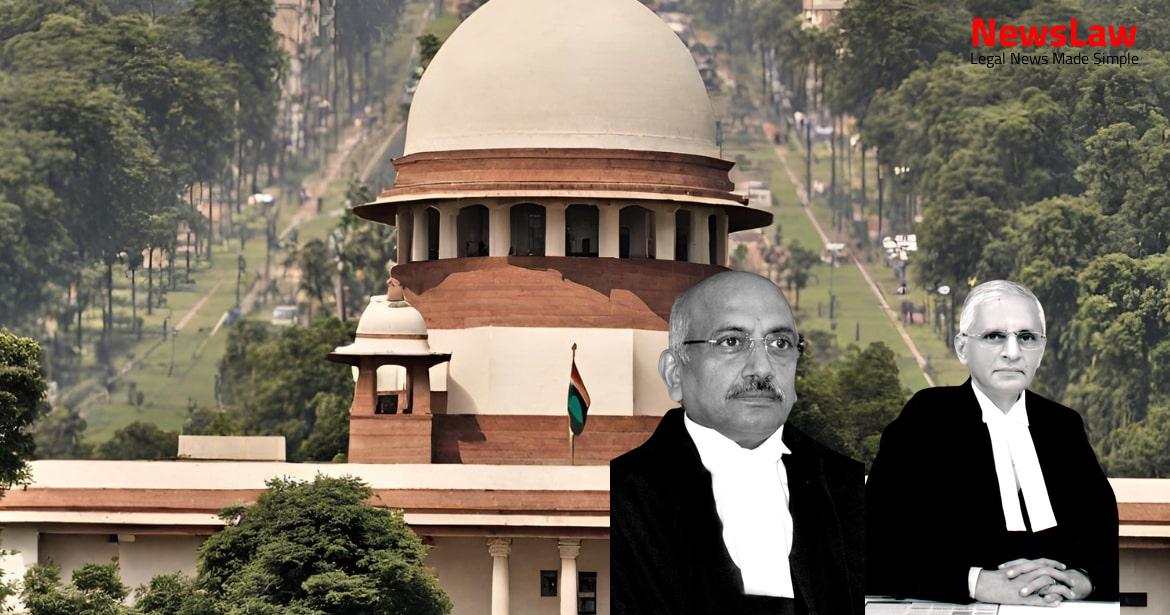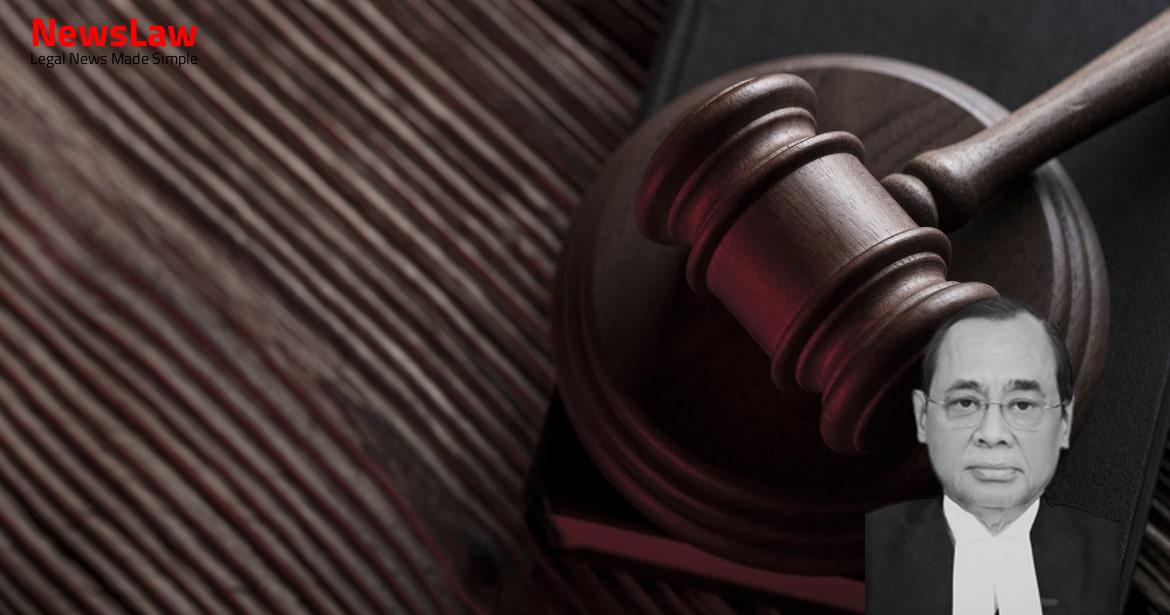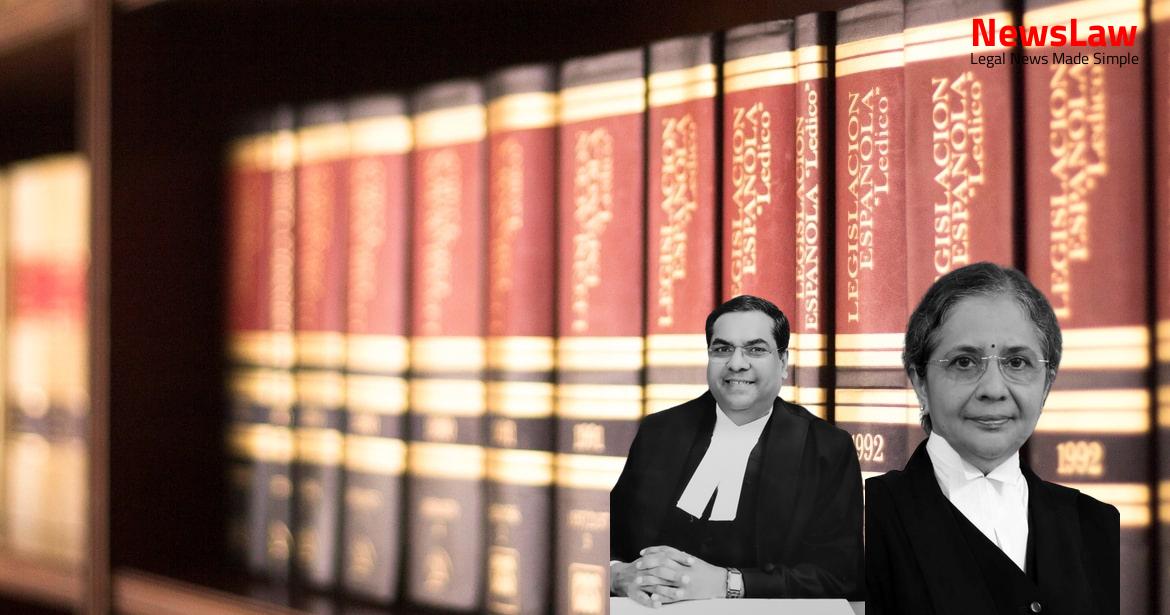The recent legal case delves into the delicate balance that courts must strike between finality of judgments and dispensing justice. The court’s legal analysis emphasizes the responsibility to correct miscarriages of justice while upholding the principle of finality. Discover how judges navigate complex legal issues to ensure the preservation of justice in the legal system.
Facts
- The batch of writ petitions has been filed by various Banks, including private banks, challenging the RBI’s directive to disclose confidential information under the RTI Act.
- The Banks argue that the information is sensitive and exempt under Section 8 of the RTI Act.
- Interlocutory Applications have been filed seeking dismissal of the writ petitions on the grounds that they essentially challenge a previous judgment of the Court.
- The applicant contends that the writ petitions are not maintainable and should be dismissed.
Also Read: Presumption of Genuine Endorsements in Cheque Case
Arguments
- RBI’s Inspection Reports under Section 35 of the Banking Regulation Act, 1949 are confidential and cannot be provided to Directors individually.
- Special Acts providing a specific disclosure procedure override RTI Act.
- Provisions in RBI Act emphasize confidentiality of certain information.
- Non-obstante clause in Section 45NB of RBI Act prevents compelling the Bank to produce or give inspection of specific information.
- Challenged action of RBI is based on information exempted under RBI Act.
- Judgements in various cases support petitioners’ stance for confidentiality.
- Right to privacy recognized as fundamental right by Supreme Court decisions.
Also Read: Medical Negligence and Compensation: A Landmark Decision
Analysis
- The concern of the Court for rendering justice is as important as the principle of finality in judgments.
- The Court has the responsibility to balance finality of judgments and dispensing justice on valid grounds.
- In rare cases, a final judgment may need reconsideration to correct a miscarriage of justice.
- Rules and procedures of court are meant to ensure proper administration of justice.
- Judges may introduce new propositions or choose between legal propositions based on experience to develop the law.
- The court has an inherent power to review its judgments to correct any mistakes.
- A judgment’s ratio decidendi can be examined or differed with in another case.
- The Supreme Court has the authority to review its own judgments under Article 137 of the Constitution.
- The judiciary is not limited to interpreting and declaring laws; it can also adapt and adjust laws to dispense justice.
- Recent trends show a shift towards dispensing justice based on the facts presented, without completely adhering to the principle of finality in judgments.
- The duty to do justice in rare cases prevails over the policy of certainty of judgment.
- Preservation of the concept of finality of judgment while also upholding the principle of ex debito justitiae.
- The court has the duty and power to rectify mistakes through its inherent powers.
- Dismissal of petitions is not based on maintainability but on the validity of the legal issue raised.
- Violation of a fundamental right cannot lead to a petition being dismissed as not maintainable.
- Legal issues raised in a petition under Article 32 may be dismissed based on earlier decisions, but reconsideration is possible if required.
- Re-examination of issues may lead to the establishment of a new legal principle or ratio.
- Judges have the jurisdiction to correct their own errors without extensive discussion of the case.
- A petition under Article 32 cannot be used to challenge or set aside a final order by the Court.
- The Apex Court does not offer any opportunity for a litigant to approach a higher forum to question its decision.
- The only remedy available to the petitioners is to file a writ petition under Article 32 of the Constitution of India for the protection of the fundamental rights of their customers.
- The RBI has issued directions based on previous court decisions in similar cases.
- The petitioners have no other option but to approach the Apex Court for redressal.
Also Read: Remand of Writ Petition for Restoration and Decision on Merits
Decision
- I.A. No.51632 of 2022 in Writ Petition (Civil) No.1159 of 2019 and I.A. No.54521 of 2022 in Writ Petition (Civil) No.683 of 2021 are dismissed.
- The same is rejected.
Case Title: HDFC BANK LTD. Vs. UNION OF INDIA (2022 INSC 1056)
Case Number: W.P.(C) No.-001159 / 2019



